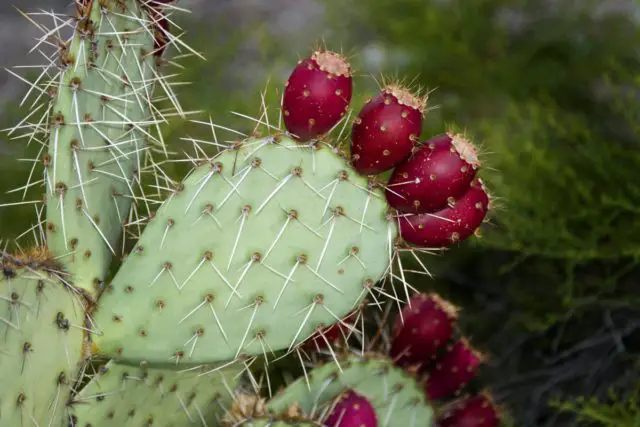
Providing good management to the prickly pear glycoids (spines) has become a great challenge for producers in the municipality of Nopaltepec, Mexico. This material remains as a residue after cleaning the pear fruit; it is highly resistant to natural degradation and represents a risk to human health.
Based on this problem, Alonso Ulloa Leitón, a graduate of the Forest Engineering career at the Technological Institute of Costa Rica (TEC), found the method to make a foliar (organic) fertilizer based on the tuna’s glycoids, in such a way that it reintegrates them into the system, but as an input for the production of the same fruit.
This is the result of his Master’s thesis project in Sciences in Agroforestry for Sustainable Development at the Chapingo Autonomous University (UACh) in Texcoco, Mexico.
Ulloa, who currently resides in Monterrey, Nuevo León, Mexico, expressed that this idea was born from the context in which the producers of this fruit are affected during the harvest and cleaning period since the glycoids fly easily with the wind and can embed itself in the skin or the eyes.
Ulloa’s research consisted of studying the morphology of the prickly pear glycoids to know their internal structure and chemical composition. It also determined the number of glycoids produced according to product performance. This allowed estimating its impact at the regional level and having a dimension of the problem.
After that, the TEC graduate hydrolyzed (chemical reaction) the material to extract its nutrients and thus obtain a foliar fertilizer to be used in the same plantations. This contributes to reducing its environmental impact and the indiscriminate use of agrochemicals, which results in an economic benefit for producers.
It should be noted that the fertilizer obtained is from the resulting hydrolysis in the laboratory phase and that extract was tested by a rose producer to determine the response of the plant (rose quality).
According to Ulloa, this fertilizer is also intended to reduce the indiscriminate use of agrochemicals, since many producers do not know the dose they have to use. This generates damage, both environmental and economic, in the production of prickly pear.

Alonso Ulloa Leitón entered TEC in 2009, where he studied a degree in Forest Engineering and obtained a Bachelor’s degree in 2015. According to Ulloa, thanks to his excellent academic training, in 2018 he was admitted to the Chapingo Autonomous University (UACh) in Texcoco de Mora, Mexico, where he completed his postgraduate studies. The same university awarded him financial aid for the development of his thesis project.
The young man points out that with the help of the Mexican government; he received a scholarship from the National Council of Science and Technology (Conacyt) and financial support from the Organization of American States (OAS) and the United Nations Organization (UN) to continue his research. This was the basis for two new projects that emerged from this collected information,” said Ulloa.
In the second year of the master’s degree, he participated in the North American Congress on Agroforestry (AFTA 2019), held at the University of Oregon, United States. He also made a research stay at the College of Postgraduates to train on the subject of circular economy with Dr. Francisco Gavi Reyes of the Department of Postgraduate Hydrosciences.
In addition to this, and as a result of its experience, the UACh sent an article on Ulloa’s thesis project to be published in the Journal of Mexican Phytotechnics, specialized in topics related to biological sciences applied to resource genetics, agricultural production, plant biotechnology, genetic improvement, plant physiology, plant food technology, and other related areas.
It has been a great challenge for Ulloa Leitón to have studied a postgraduate degree abroad. However, he stresses that with the support received from his thesis tutor, Dr. María Edna Álvarez Sánchez, and her colleagues, he managed to grow professionally and personally.
“I realized the capabilities that I have to carry out a challenge of great magnitude with excellent results. So I decided to embark on my professional path to Mexico given the needs here and thus be able to repay all the support I have received from the Mexican government,” said the TEC graduate.
Finally, Dr. Dagoberto Arias Aguilar, professor, and researcher at the School of Forest Engineering state that Alonso, since he was a student, was very clear that he wanted to continue this specialization with an emphasis on research.

